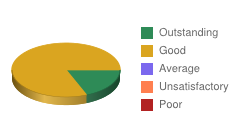Jobs Most Affected by AI: Tasks, Industries, and Timelines
If you're wondering how AI could reshape your career, you're not alone. Rapid advancements are transforming industries like customer service, retail, and translation—sometimes automating over half of the tasks involved. Entry-level roles are especially at risk, and estimates suggest millions of jobs could be impacted much sooner than you might expect. As this technology accelerates, you'll want to know which roles are most vulnerable and how you can adapt before change arrives at your door.
Key Job Tasks Most Vulnerable to AI
AI is increasingly influencing various sectors, leading to the automation of specific job tasks. Certain roles, particularly those involving language translation, customer service, and data entry, are highly susceptible to this trend.
Tasks that require repetitive information processing, such as document management and language-based activities, are particularly vulnerable. Positions like interpreters, translators, and customer service representatives are already experiencing a notable shift, indicating potential job reductions in these areas.
Similarly, roles focused on cash handling, such as bank tellers and cashiers, are also being affected by technological advancements.
To remain relevant in a changing job landscape, it's advisable for workers in these vulnerable roles to concentrate on acquiring skills that AI can't easily replicate.
This may involve focusing on complex problem-solving, emotional intelligence, and creative thinking—areas where human capabilities still have significant advantages over AI.
Industries Facing the Greatest AI Disruption
AI is significantly impacting various industries, with some experiencing more disruption than others. In customer service and retail, automation is poised to affect a substantial number of jobs. Reports indicate that approximately 65% of tasks in these sectors could be automated in the near future, which may lead to a notable shift in daily responsibilities for employees.
In knowledge-intensive roles, such as those held by historians and writers, AI systems are increasingly capable of performing complex tasks, raising concerns about the future viability of certain positions.
In contrast, the healthcare sector is adapting to AI by incorporating it to enhance existing roles rather than completely eliminating them. For instance, AI technologies are being utilized for data analysis and diagnostic support, which can enhance productivity and efficiency while also necessitating adjustments in the skill sets required for healthcare professionals.
Timeline of AI Impact on Employment
As AI technology progresses, its implications for employment are becoming increasingly evident. By 2025, estimates suggest that approximately 50 million jobs in the U.S. could be at risk of automation, particularly affecting entry-level positions.
By 2030, projections indicate that up to 30% of existing jobs may be subject to automation, with around 60% undergoing significant changes in the tasks required due to AI integration. On a global scale, it's anticipated that around 300 million jobs could be displaced by AI, leading to workforce reductions and a transformation of career trajectories.
However, it's also expected that new job opportunities will arise for those who are able to adapt to these changes. As a result of these shifts, it's projected that 14% of the workforce may consider changing careers by 2030.
These developments necessitate proactive measures for workforce education and skill acquisition to better prepare for the evolving job landscape.
The Top 15 Jobs Most at Risk From Automation
The advent of artificial intelligence (AI) presents a notable challenge for certain professions, particularly in terms of job security. Among the roles identified as having the highest exposure to automation are interpreters and translators, which have been assigned a risk score of 0.49. This rating indicates a significant likelihood of tasks associated with these professions being automated.
Sales representatives in services also face considerable exposure, with approximately 1.2 million jobs potentially at risk due to automation technologies.
Additionally, professions such as historians, customer service representatives, and CNC (Computer Numerical Control) tool programmers are similarly affected, as they often involve tasks that AI can perform, such as language processing and repetitive data handling.
As automation technologies continue to advance across various sectors, there's a clear trend towards the potential replacement of jobs that involve tasks easily managed by AI. This shift underscores the importance of workforce adaptability; individuals in these at-risk roles may need to enhance their skills and diversify their capabilities to maintain relevance in a changing labor market.
How AI Adoption Is Shaping Workplace Change
The rise of automation, fueled by advancements in artificial intelligence (AI), is reshaping job functions across various industries. By the year 2030, it's projected that automation could significantly alter the tasks associated with approximately 60% of current job roles, while around 30% could be fully automated.
Roles that involve high exposure to automation, such as interpreters, translators, customer service agents, and sales personnel, may see AI taking over certain overlapping responsibilities, thereby amplifying its impact on these sectors.
Moreover, industries that rely heavily on knowledge-based work are also experiencing changes, as AI technologies increasingly align with numerous job functions within these fields.
In response to these shifts, reskilling has become essential for maintaining competitiveness in the labor market. Research indicates that about 59% of workers will need to enhance their skills to effectively navigate these evolving workplace dynamics.
Understanding and addressing these trends will be crucial for both employees and employers as they adapt to the realities of a changing employment landscape driven by AI and automation.
Skills and Careers Poised for Growth Amid AI Advances
As automation transforms the job market, it creates significant opportunities in areas that require specialized skills. The rise of artificial intelligence (AI) and machine learning is leading to an increased demand for technical expertise.
For example, the role of information security analysts is becoming increasingly vital due to the growing significance of cybersecurity in tandem with AI advancements. Furthermore, data analysts and data scientists are also expected to have strong employment prospects as organizations seek to leverage data more effectively.
Emerging roles such as linguistics experts and prompt engineers illustrate the evolving nature of job opportunities linked to AI technologies. These new positions highlight the increasing complexity of AI applications and the need for professionals who can effectively interact with and optimize such systems.
To remain competitive in this changing environment, professionals must prioritize upskilling and continuing education. Research indicates that a significant portion of the workforce may require new skills to adapt to these shifts in job requirements and industry demands.
As such, lifelong learning will likely become essential for career advancement and job security in the face of technological advancements.
Gender and Generational Effects of AI on the Workforce
As AI continues to transform the job landscape, its effects aren't uniform across different age groups and genders. Research indicates that members of Generation Z are significantly more concerned about job security, with statistics showing they're 129% more likely to express worries about job obsolescence due to AI automation. This concern stems from the potential risk posed to nearly 50 million entry-level jobs, as AI systems increasingly take over tasks traditionally performed by human workers.
Furthermore, there's a notable perception among younger workers that the value of a college degree may be diminishing in the age of AI, with nearly half of surveyed Gen Z individuals holding this view.
Gender dynamics also play a crucial role in how AI impacts employment. Women are disproportionately represented in clerical roles, which are at a higher risk of displacement due to automation. Conversely, men are more likely to be affected in manual labor positions, highlighting a gendered dimension to job vulnerability in the AI era.
In contrast, older workers often express a greater sense of job security. This demographic may perceive themselves as less vulnerable to the rapid changes introduced by AI, perhaps due to their positions or the types of roles they occupy, which can offer more stability.
Conclusion
You’re facing a rapidly changing job market as AI transforms tasks and entire industries. If you’re in customer service, retail, or entry-level roles, you’ll need to adapt quickly, since automation could affect millions of jobs by 2025. Don’t wait—start building future-proof skills and exploring tech-driven careers now. By staying flexible and proactive, you’ll not only safeguard your career but also unlock new opportunities as AI continues reshaping the world of work.




